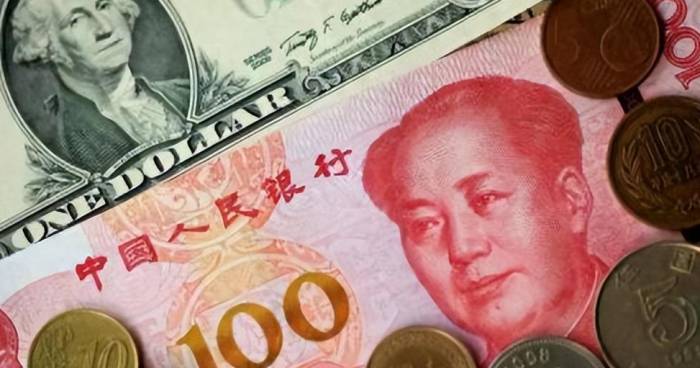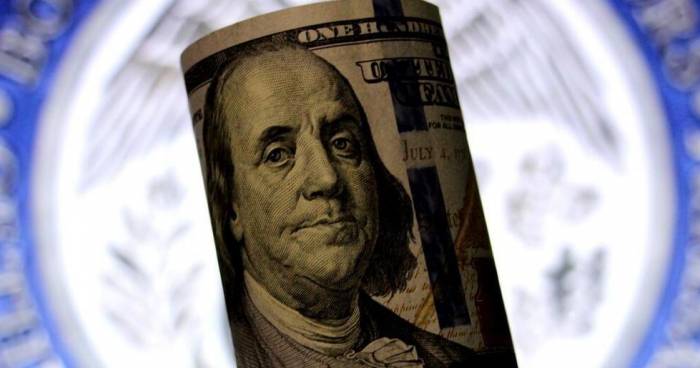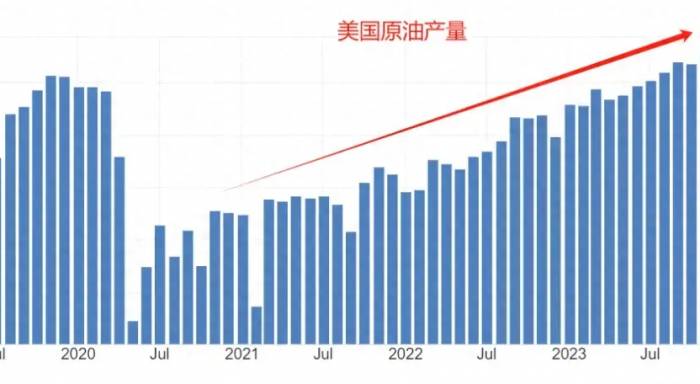It is often said that "the river's east side is prosperous for thirty years, and the west side for thirty years."
This adage also applies to the global economy.
Look no further than the once-dominant US dollar in the international financial markets, which seems to be on a downward trend lately.
To make matters worse, even its close ally, Japan, has started to "abandon" it in favor of protecting its own yen.
The story begins with the recent fluctuations in the yen's exchange rate.
Lately, the yen-to-US dollar exchange rate has been as volatile as a roller coaster, causing heart-stopping moments for observers.
Seeing the situation deteriorating, the Japanese government immediately intervened, selling a large amount of dollars and buying a significant amount of yen, thus stabilizing the situation.
At first glance, this seems to be just a typical currency fluctuation, but upon closer examination, it's not that simple.
After all, Japan has been the United States' top "follower" in the Asia-Pacific region, always obedient to America's commands and closely aligned economically.
The Bank of Japan has long been a major buyer of US Treasury bonds, providing financial support for the massive US debt, essentially being the "backer" of the US.
However, this time, Japan has acted unusually, willing to "sacrifice" the dollar to protect the yen, which is quite intriguing.
It's important to note that selling US bonds directly impacts the US dollar's exchange rate, and Japan's move this time is clearly a challenge to the dollar.
So, why is Japan "turning against" the dollar?
Ultimately, it's because the "big brother" dollar is becoming increasingly unreliable.
Back in the day, the dollar, backed by the United States' strong economic and military power, established the Bretton Woods system centered around the dollar after World War II, becoming the world's main reserve currency and a dominant presence in the international financial markets.
But now, this "big brother" is increasingly resembling a "helpless Adou," with a multitude of internal issues and facing various external challenges, making life quite uncomfortable.
Let's start with internal issues: the US economy has been sluggish in recent years, with government debt ballooning like a balloon, and inflation running rampant like a wild horse that can't be controlled.
To combat inflation, the Federal Reserve has had to continuously raise interest rates, which in turn has further increased the risk of economic recession, with unemployment rates also rising.
This series of "punches" has left the US economy in a state of "trouble both internally and externally," suffering greatly.
As for external factors, the US, relying on its "big and strong" status, has not been shy about causing mischief internationally, frequently wielding the dollar as a big stick to impose economic sanctions on other countries, leading to growing discontent in the international community.
As the saying goes, "those who gain moral support will have many supporters, while those who lose it will have few."
The US's "I'm number one" hegemonic behavior will eventually lead to its downfall.
As expected, more and more countries are now "voting with their feet," reducing their dollar assets and increasing their gold and other reserve assets, moving towards "de-dollarization."
Even Saudi Arabia, long seen as a "close ally" of the US, has started to "look for new love," getting cozy with China, and recently signed a $50 billion investment agreement.
All these developments point to an undeniable fact: the dollar, once the "currency overlord," is stepping down from its pedestal!
The decline of the dollar presents a once-in-a-lifetime historical opportunity for China, which has long desired a greater voice on the international stage.
Over the years, China's economy has maintained rapid growth, its comprehensive national strength has been continuously increasing, and the internationalization of the renminbi is steadily advancing.
Especially in recent years, as the credibility of the dollar has continued to decline, more and more countries have started to turn their attention to the renminbi.
Trade settlements between China and BRICS countries such as Russia, Brazil, and South Africa have increasingly used the renminbi.
Even European countries, long considered "die-hard fans" of the dollar, have started to try buying oil, natural gas, and other commodities with the renminbi.
More importantly, China holds an "ace up its sleeve"—its massive foreign exchange reserves.
China's foreign exchange reserves have long been the largest in the world, a significant portion of which exists in the form of dollar assets.
Once the renminbi begins to appreciate, these dollar assets will become "hot cakes," attracting investors from all over the world, making it difficult for the renminbi not to "catch fire."
Of course, the path to the internationalization of the renminbi is not smooth sailing, and challenges still exist.
After all, the degree of renminbi internationalization is far from sufficient, and the capital account has not yet fully opened, which to some extent restricts the circulation and use of the renminbi in the international market.
Moreover, the US and other Western countries are wary of China's rise, and they will not sit idly by and watch the renminbi replace the dollar as the new "world currency."
It can be anticipated that in the future, they will try every means to hinder the process of renminbi internationalization, such as suppressing China in international financial institutions and creating renminbi exchange rate fluctuations in the financial markets.
Faced with these challenges, China must remain clear-headed and steadfastly follow its own path.
We must continue to deepen reform and opening up, improve the renminbi exchange rate formation mechanism, and raise the level of financial market openness to create more favorable conditions for the internationalization of the renminbi.
At the same time, we must strengthen cooperation with other countries to jointly promote the establishment of a more fair, just, and reasonable international monetary system.
Returning to the yen defense war mentioned at the beginning, this may only be the beginning.
In the future, as the international landscape changes, similar "currency wars" may become more frequent.
In this war without smoke, whoever can seize the initiative will be able to grasp the initiative of the future global economy.
For China, this is an era full of opportunities and challenges.
We are confident and capable of seizing opportunities and meeting challenges, allowing the renminbi to play a greater role on the international stage and contributing Chinese wisdom and strength to the construction of a community with a shared future for mankind!
After all this talk, I believe everyone has a deeper understanding of the decline of dollar hegemony and the opportunities for the internationalization of the renminbi.
Some say that the 21st century is the century of Asia, the century of China.
In this magnificent historical process, the renminbi will inevitably play an increasingly important role.
In the future, whether the dollar will continue to "act with arrogance" or "retire gracefully," we will wait and see.
As for each of us ordinary people, perhaps we should think more about how to find our place in this unprecedented great transformation, seize opportunities, meet challenges, and create our own wonderful life!
Of course, investment has risks, and entering the market should be done with caution.
At any time, we must maintain a rational investment mentality, not blindly follow the trend, and not put all our eggs in one basket.






Leave a Comment